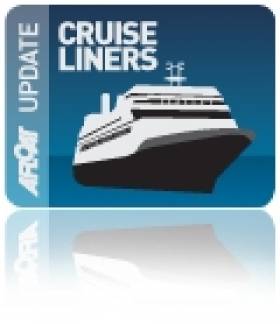Displaying items by tag: Philippe Plisson
Mega-Yacht Cruiseship Le Boréal Visits Dublin
At 142m long she was built by the Italian Fincantieri shipyard and can take 264 guests in 132 luxury cabins and in public spaces the interior has a distinctly French flair from the hand of designer Jean-Philippe Nuel. She is flagged in the Wallis Futuna Islands in the Polynesian French island territory in the South Pacific.
The vessel has a cruising speed of 16 knots and a crew of 139 look after her guests throughout six decks. On the top deck named Le Paris Deck an open-air bar is located aft and forward is a sun deck area. Below on Le France Deck there is a swimming pool, grill restaurant, internet station, library panoramic lounge and an adjoining open-decked forward facing terrace sited above the bridge.
On the Le Normandie DecK there is a fitness beauty corner, a massage, hair salon, leisure area and an image & photo desk in partnership with Philippe Plisson, synonymous for his dramatic scenes of Breton lighthouses. The photographer is based in La Trinité sur Mer for more click here.
The next deck is the Le Lafayette Deck which is predominately occupied by 35 Prestige staterooms each featuring private balconies and located aft is the theatre. Going down another deck is the Le Champollian Deck where there is the main lounge, shop, reception desk, excursion desk and a medical center. Finally we reach Le Liberté Deck where guests can dine at the gastronomic restaurant, the Marina.
Twenty three years ago Compagnie du Ponant was founded by her owners the CMA CGM Group, the world's third largest container shipping group. The cruise company is an integral part of French maritime heritage and owes its origins to the renowned Compagnie Générale Transatlantique French Line.






























































